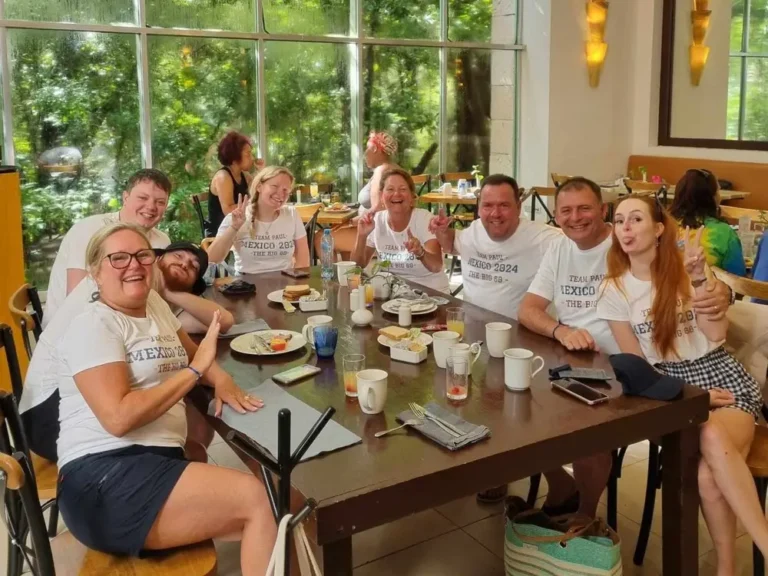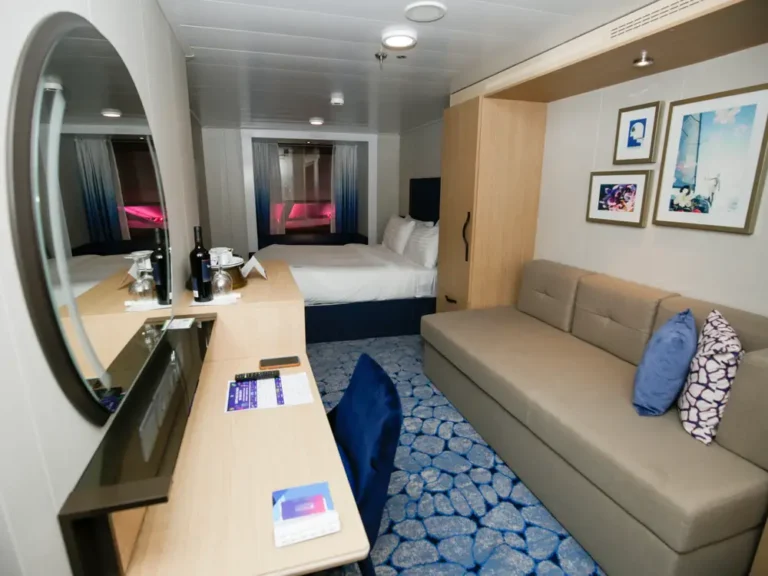How Rimowa’s CEO plans to keep growing beyond luxury luggage
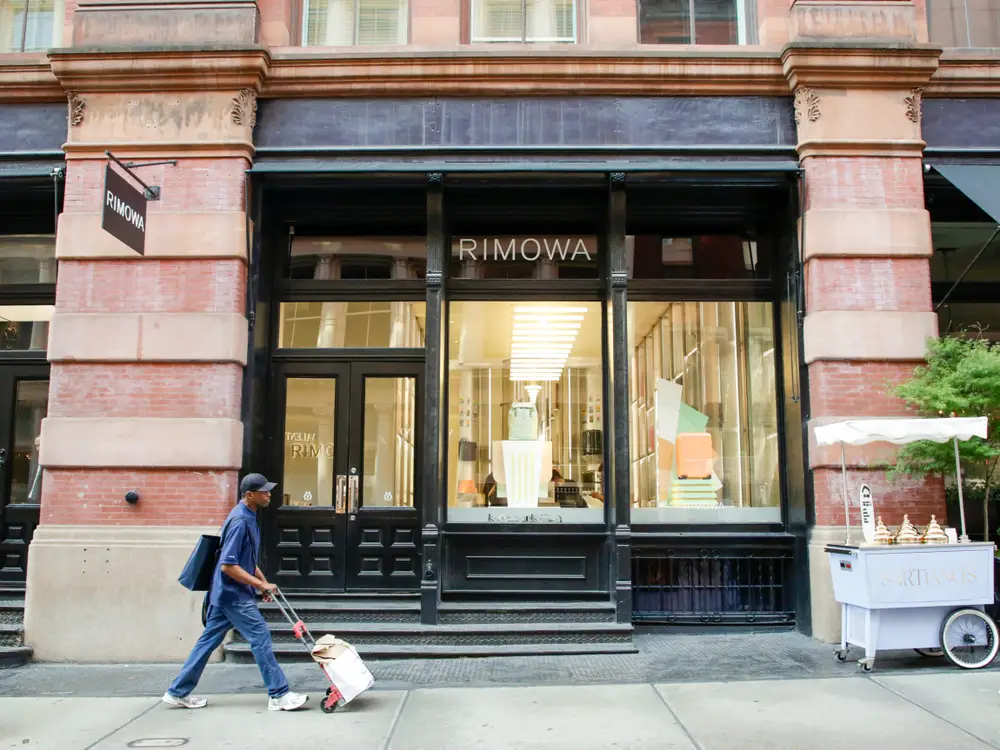
Hugues Bonnet-Masimbert, CEO of Rimowa, told B-17 that the company’s buyers are split evenly between male and female.
Luxury giant LVMH owns iconic household names like Louis Vuitton, Dior, and Tiffany and Co. And yet, one of its fastest-growing companies is a brand you might not have heard of — Rimowa.
It’s a luggage maker best known for one product, a grooved aluminum suitcase with a rabid fan base. The least expensive carry-on model goes for $1,430, while the largest trunk rings in at $2,450.
Rimowa has been a key player in the suitcase industry since before it was acquired by LVMH in 2016. The 126-year-old German company is synonymous with two of the biggest hard-shelled luggage trends over the past century, following the debut of an aluminum version in the 1920s and a polycarbonate option eighty years later.
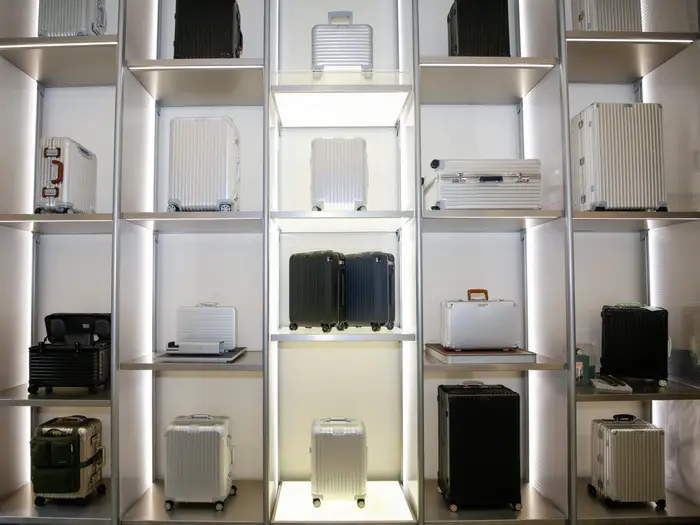
Rimowa manufactures its products in its factory in Germany.
Scores of competitors like Away, Samsonite, and Tumi have since unveiled similar styles — most for a fraction of Rimowa’s price.
Despite these other options, Rimowa’s fan base has remained loyal to the brand’s smooth wheels, timeless look, lifetime warranty, and status symbol title.
One buyer, Vanessa Garoute, 30, told B-17 she considered herself a lifelong Rimowa client, having purchased six pieces since 2017.
Another, Tania Antonenkova, 32, estimated she and her husband have collected more than 17 of the high-end suitcases. (Martha Stewart, among other high-profile owners, also famously owns a collection of Rimowas and has publicly professed her love for the brand.)
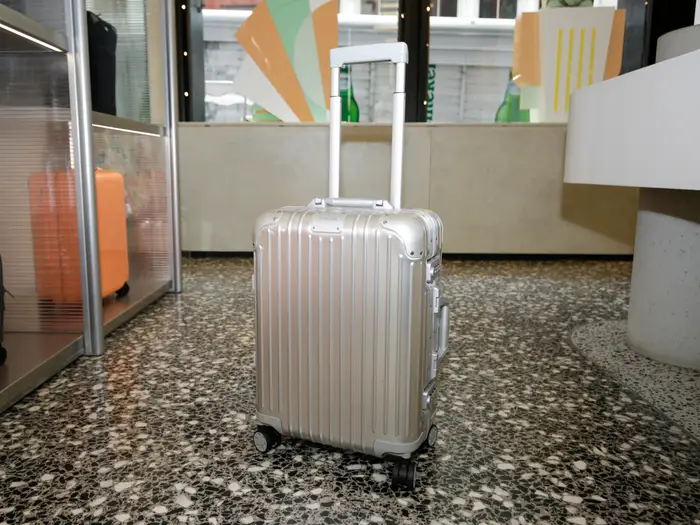
Aluminum is synonymous with Rimowa’s brand.
With such devoted customers, it’s no wonder these industrial-chic bags-on-wheels have been a beacon of light amid a recent dip in luxury goods sales due to a slowdown of demand in China.
While LVMH’s overall operating profit dipped 8% in the first half of 2024 compared to the previous year, its fashion and leather goods segment, which includes Rimowa, saw a 6% drop.
Despite this, the suitcase company (along with cashmere maker Loro Piana) continued their “excellent momentum,” LVMH said.
A spokesperson for Rimowa told B-17 that the luggage maker is now one of its parent company’s fastest-growing brands.
Rimowa has been expanding its presence from Europe and Asia into North America, with the US now serving as one of its top markets, CEO Hugues Bonnet-Masimbert said in an interview.
Fashion meets mobility
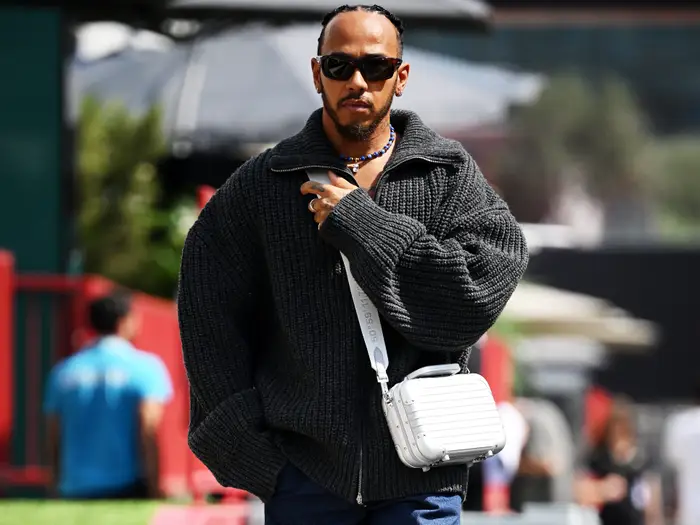
Formula 1 star Lewis Hamilton pictured wearing Rimowa’s new Original Bag.
For frequent travelers, Rimowa’s iconic suitcases have become as much a style statement as they are a necessity. Looking ahead, the company could continue to drill into this unique niche while expanding into more everyday accessories.
In early September, Rimowa unveiled its new Original Bag, a $2,125 aluminum cross-body purse with the company’s signature ribbed exterior. It’s “another step in the fashion space,” Bonnet-Masimbert said, and a hint of how the company hopes to progress in the coming years.
For a company so synonymous with luggage, it was an “interesting challenge,” the CEO said — one that took three years to develop.
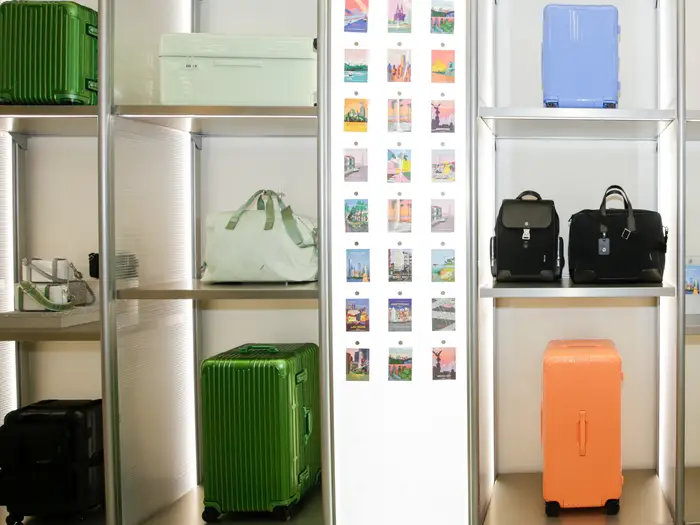
Rimowa’s non-luggage products have been a recent development.
The new purse isn’t Rimowa’s first move into the everyday accessories space. In the last five years, the company has debuted a growing portfolio of non-luggage products such as backpacks, duffle bags, and tote bags.
Luggage has remained its most popular product. However, according to Bonnet-Masimbert, these steps into the wearable market have been performing “extremely well.”
“We feel we are very legitimate in that space, and that opens a lot of future product offerings,” Bonnet-Masimbert said.
Expect more of it — “We have lots of things cooking,” the company’s CEO hinted.

